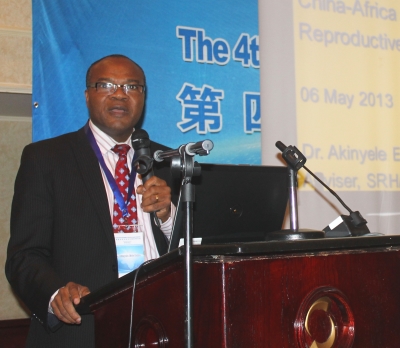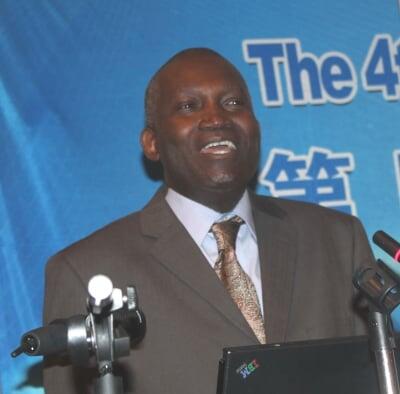Africa regional frameworks should guide the China-Africa health collaboration. This was said by Mr. Bunmi Makinwa, UNFPA Regional Director for East and Southern Africa, at the fourth International Round Table on China-Africa Health Cooperation, which ended in Gaborone yesterday.
In a key note speech on how international organizations can support the China-Africa health partnership, Mr. Makinwa said: “The continent has several regional instruments such as the African health strategy and the Maputo Plan of Action on sexual and reproductive health,” which should serve as the basis for the collaboration.
He also advocated for “collaboration, cooperation and coordination” of international partners, including the United Nations, in the process, which would facilitate better results for society.
Mr. Makinwa underscored the place of leadership in achieving social change. “Without leadership from various partners and stakeholders, it is difficult to effect social change on a large scale. Countries that have achieved major results on the continent have been doing so through effective leadership.”
Addressing a round table session on sexual and reproductive health, UNFPA Programme Adviser Dr. Akinyele Dairo said the Campaign on Accelerated Reduction of Maternal Health in Africa (CARMMA) was an African Union Commission initiative to promote and advocate for intensified implementation of the Maputo Plan of Action in order to reduce maternal mortality and attain Millennium Development Goal (MDG) 5.

The added value of CARMMA is in mobilizing political commitment and the support of key stakeholders and communities for additional resources, generating and providing data on maternal and newborn health and deaths and creating champions in government leaders, political figures, and traditional and social influence, to accelerate action for reducing maternal health in Africa.
CARMMA partners include UN agencies, bilateral organizations, non-governmental organizations, academia, media professionals and the private sector.
A communiqué produced at the end of the meeting included the following:
- African Union (Commission for Social Affairs) to convene a working group to develop consensus on principles to guide Africa-China health cooperation and advise on mechanisms to strengthen and support ongoing dialogue.
- China-Africa partnership should be tailored to support national strategies addressing five priority areas: malaria, schistosomiasis, HIV, maternal mortality reduction and reproductive health, and immunization.
- A high level working group (comprising African, Chinese and international stakeholders) be formed to consider Africa’s priority needs for health commodity security, alternate strategies for assuring commodity security in the short and longer terms, mechanisms and capacities required to ensure registration and quality assurance of health commodities, and make recommendations as to how Africa-China public-private partnerships could help address these challenges.
The 4th International Round Table on China and Africa Health Collaboration was the first to be held in Africa and was attended by some 250 high level delegates from various institutions in China, the AUC, international development partners and representatives from African countries (Ghana, Nigeria, Mozambique, Botswana and Tanzania).


